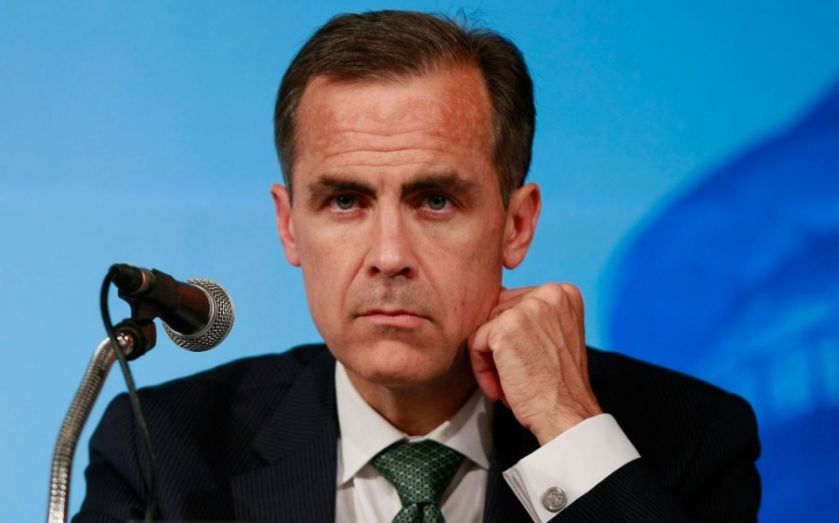Quarterly inflation report: Bank of England signals no interest rate hike until autumn 2015, cuts growth and inflation forecasts

No rate rise until next autumn – that was the message from Bank of England governor Mark Carney in his quarterly inflation report this morning.
"What really matters is the broad process of monetary policy, not a specific date for the first interest rate rise", Carney said, causing markets to predict the first increase will be in October next year
Carney made his prediction as he cut growth forecasts for next year: GDP will now rise 2.9 per cent in 2015, down from its original expectation of 3.1 per cent. This year growth is expected to hit 3.5 per cent. The slowdown in the European economy played a big part in the central bank's revisions.
The slowdown comes on even weaker economic figures in Europe. Carney said "a spectre is haunting Europe, the spectre of stagnation". Last month, the International Monetary Fund doubled the chances of the eurozone slipping back into recession since April to 38 per cent.
The near-term inflation forecast was also pared back, adding to the case for a delay to the rise in interest rates. Inflation has been pushed down, in part by a four-year low in the price of oil. The Bank said inflation is mlikely to fall below one per cent in the next six months.
Data released earlier today showed unemployment flat at six per cent in the three months to September, missing analyst expectations. Things are still heading in the right direction, but the reduction in unemployment will now not be as rapid as was hoped.
In reality, the prospect of a rate hike before May next year had always been a remote one given the fact that inflation has been consistently running well above the rate of wage growth.
IHS Global Insight's Howard Archer, commented:
We expect unemployment to continue to trend downward over the coming months, but likely at a gradually slowing rate to stand at 5.8 per cent at the end of 2014 and 5.3 per cent at the end of 2015. Reduced economic growth, an expanding labour pool and improving productivity are expected to cause the fall in unemployment to moderate.
However, there was some good news, with wage growth excluding bonuses rising by 1.3 per cent, finally climbing above the inflation rate of 1.2 per cent. But we've been here before only to be disappointed a few months later, so don't celebrate the end of the great wage squeeze just yet.